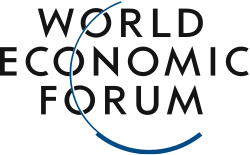Togo: Violent Protests Erupt in Lomé Over Constitutional Reforms
- Josephine Nanortey

- Jul 1, 2025
- 3 min read

Intelligence Update
Anti-government protesters called for protests to demand the resignation of Faure Gnassingbé between 26-28 June 2025, after the ‘Hands Off My Constitution’ group called for three days of protest. Thousands gathered in Lomé as some protesters blocked major roads. At least seven people died after clashes with security forces ensued. Security personnel used tear gas to disperse crowds, while some protesters retaliated by hurling stones and other projectiles. Locals also noted the presence of numerous militiamen in unmarked vehicles, their faces uncovered, carrying cords, batons, and rifles. The confrontations were recorded in areas such as Bè, Attiegou, Adakpamé and Akodessewa. Internet access was also restricted, with social media platforms including TikTok, Facebook, and Telegram functioning intermittently. On 30 June 2025, a coalition of 23 civil society organisations affiliated with the National Platform for Civic Space and Development Effectiveness issued a statement condemning what they described as the "disproportionate use of force against peaceful demonstrators."
Why are Togolese protesting?
Similar protests were recorded between 05-06 June 2025 in Lomé as security forces moved swiftly to shut down the protest. Police officers were deployed in large numbers across Lomé, particularly near the presidency. Tear gas was used to disperse small gatherings of demonstrators.
Recent protests have been triggered by constitutional reforms that could consolidate President Gnassingbé's long hold on power. The protests were also driven by frustration over a crackdown on dissenting voices, surging electricity prices. Gnassingbé has ruled Togo since the death of his father, Gnassingbé Eyadéma, who ruled for 38 years and died in 2005. Since then, he has been accused of rigging elections and has made changes to the country’s constitution to enable him to extend his indefinite rule.
In 2024, Togo implemented a reform which changed the presidential system to a parliamentary one, making the role of President of the Republic a ceremonial post. In May 2025, Gnassingbé was sworn in as the President of the Council of Ministers, a role which allows him to remain in power without any term limits. The President of the Council of Ministers leads both the government and the armed forces, making the position the highest power in the state’s executive branch. The role is renewable with a six-year term, dependent on parliamentary support, instead of fixed-term limits. In his place, Jean-Lucien Kwassi Savi de Tové was elected by the parliament as President of the Republic. The opposition party called the move a “constitutional coup”.
Government’s response and allegations of dissent suppression
In response to the protests, the Togolese government released a statement accusing the protest organisers, particularly those based abroad, of orchestrating a "campaign of disinformation, hatred, violence, incivility, and civil disobedience." According to the government, several individuals have been arrested in connection with the unrest, including foreigners who allegedly entered the country illegally.
Various civil society groups have accused the government of violent repression and arbitrary arrests of activists. Media Foundation for West Africa (MFWA) said that many unarmed protesters were beaten, and numerous bystanders and residents were arrested without legal justification during the protests. The MFWA also reported that the bodies of some protesters were found in the Fourth Lake in the Akodessewa neighbourhood and Bè Lagoon with bullet holes. The Togolese government denied that these deaths were linked to the demonstrations. Amnesty International also said it collected testimonies which allege the mistreatment that protesters experienced at the hands of security forces. The human rights organisation said that it documented 13 testimonies describing a pattern of unlawful force and mistreatment by security forces and police during these protests.
Days before the protests in late June, the High Authority for Audiovisual Communication announced it was suspending French public broadcasters RFI and France 24 for three months, for an alleged lack of impartiality in their reporting. The agency didn’t provide any details on what reporting by the French networks led to the decision.
Way Ahead
Despite public outcry, the Togolese government is unlikely to reverse the constitutional reforms which extend Gnassingbé’s power indefinitely. Hence, further anti-government unrest is likely in the near term. This will likely manifest in the form of roadblocks and curfews, which will directly disrupt supply chains, causing operational delays for businesses. Authorities are expected to respond with heavy-handed tactics and violent repression. Although this may suppress protests temporarily, tensions are likely to remain, raising the country’s risk profile. The suspension of foreign media and internet restrictions reflects the government’s increasing reliance on censorship and intimidation tactics. For further information on how this development could impact your business, please contact Global Situational Awareness at gsoc@global-sa.co.uk.



